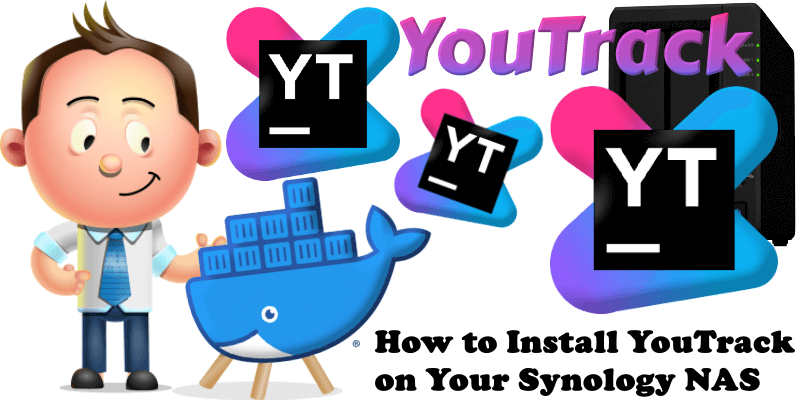
YouTrack is a proprietary, commercial browser-based bug tracker, issue tracking system and project management software developed by JetBrains. It focuses on query-based issue search with auto-completion, manipulating issues in batches, customizing the set of issue attributes, and creating custom workflows. In this step by step guide I will show you how to install YouTrack on your Synology NAS with Docker & Portainer.
STEP 1
Please Support My work by Making a Donation.
STEP 2
Install Portainer using my step by step guide. If you already have Portainer installed on your Synology NAS, skip this STEP. Attention: Make sure you have installed the latest Portainer version.
STEP 3
Make sure you have a synology.me Wildcard Certificate. Follow my guide to get a Wildcard Certificate. If you already have a synology.me Wildcard certificate, skip this STEP.
STEP 4
Install Text Editor via Synology “Package Center”. (Mandatory STEP.) If you already have Text Editor installed on your Synology NAS, skip this STEP.
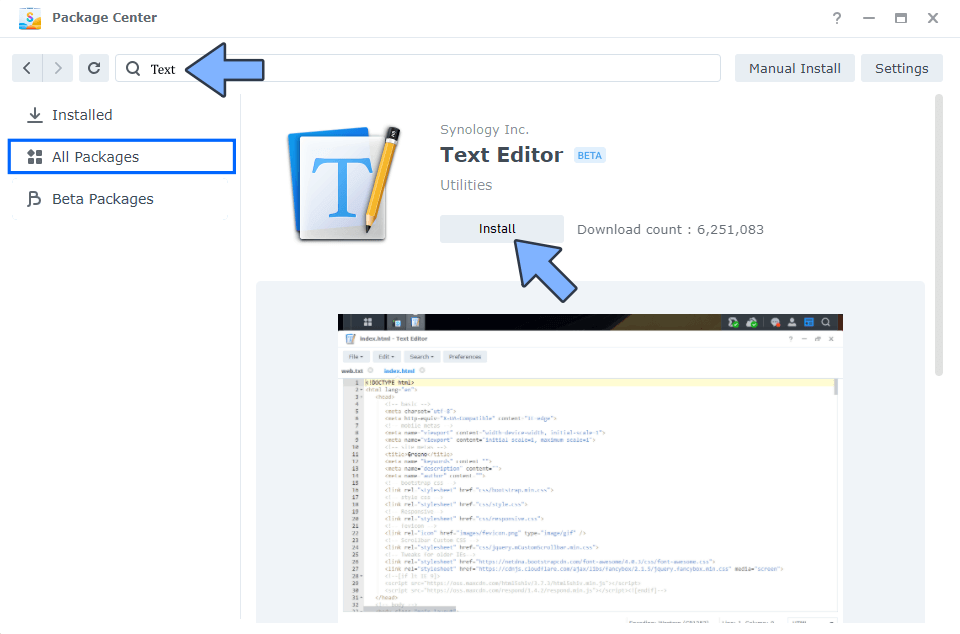
STEP 5
Go to Control Panel / Login Portal / Advanced Tab / click Reverse Proxy. Follow the instructions in the image below.
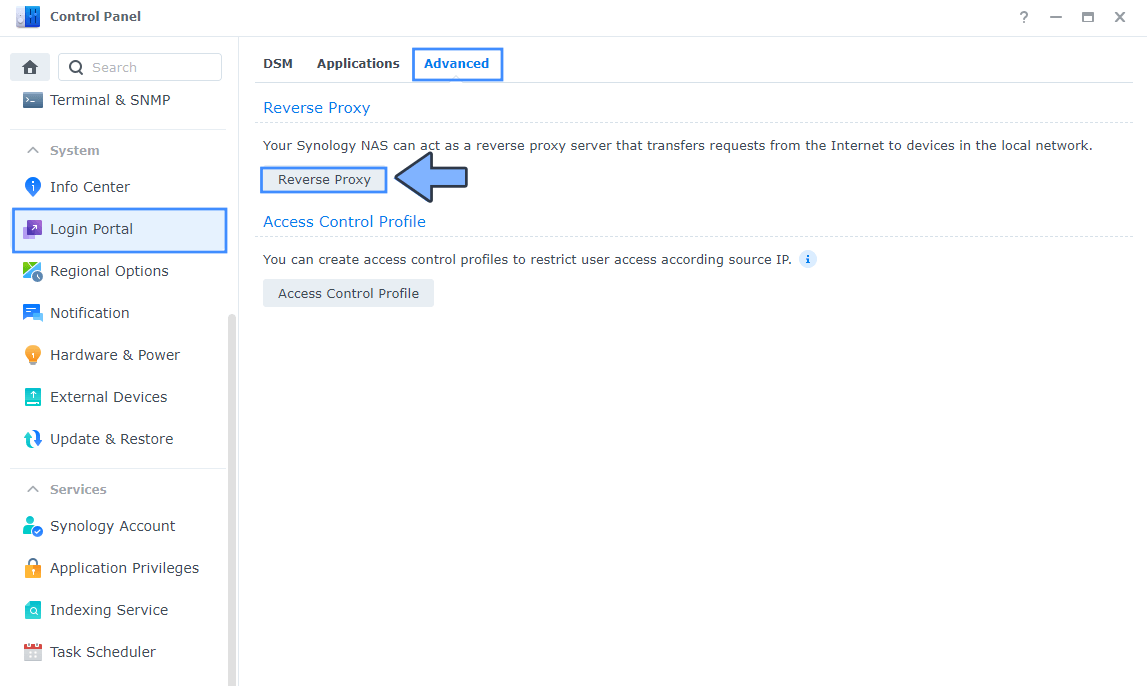
STEP 6
Now click the “Create” button. Follow the instructions in the image below.
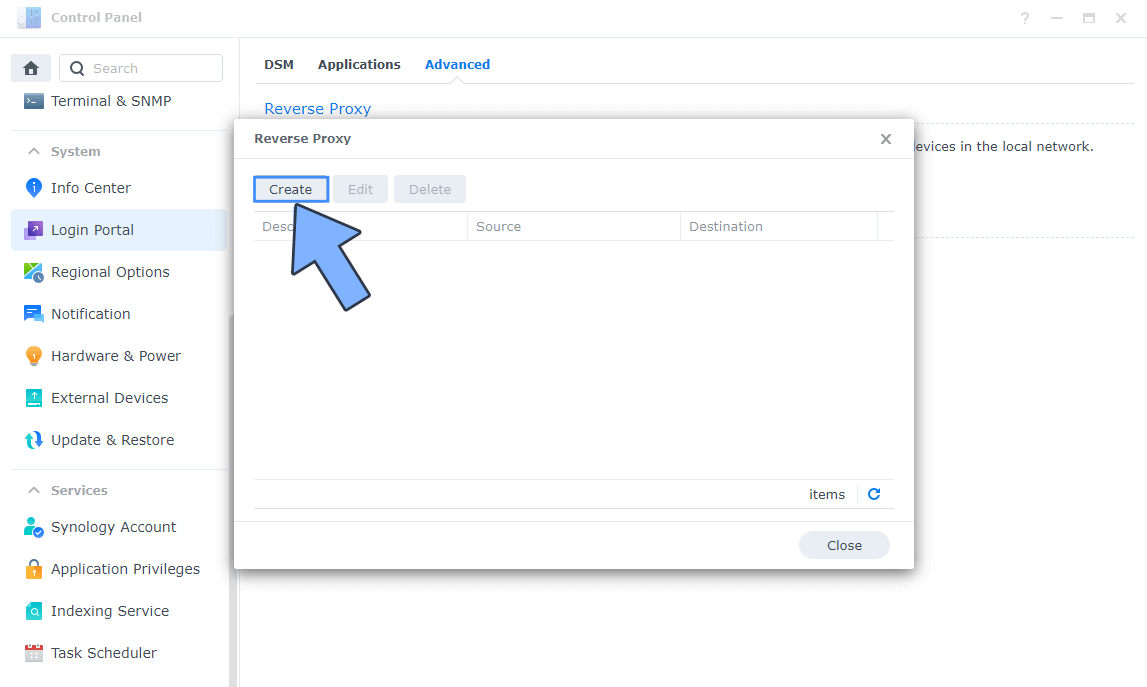
STEP 7
After you click the Create button, the window below will open. Follow the instructions in the image below.
On the General area, set the Reverse Proxy Name description: type in YouTrack. After that, add the following instructions:
Source:
Protocol: HTTPS
Hostname: youtrack.yourname.synology.me
Port: 443
Check Enable HSTS
Destination:
Protocol: HTTP
Hostname: localhost
Port: 4072
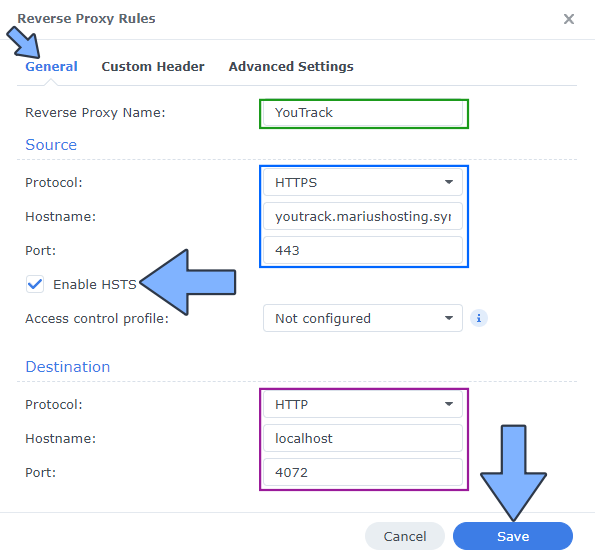
STEP 8
On the Reverse Proxy Rules, click the Custom Header tab. Click Create and then, from the drop-down menu, click WebSocket. After you click on WebSocket, two Header Names and two Values will be automatically added. Click Save. Follow the instructions in the image below.

STEP 9
Go to Control Panel / Network / Connectivity tab/ Check Enable HTTP/2 then click Apply. Follow the instructions in the image below.
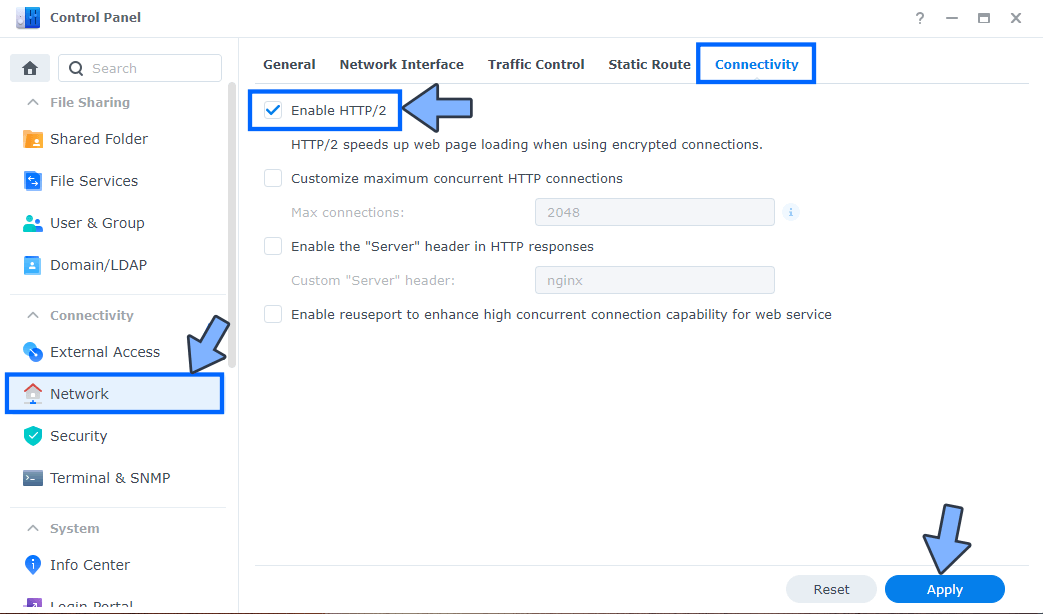
STEP 10
Go to Control Panel / Security / Advanced tab/ Check Enable HTTP Compression then click Apply. Follow the instructions in the image below.
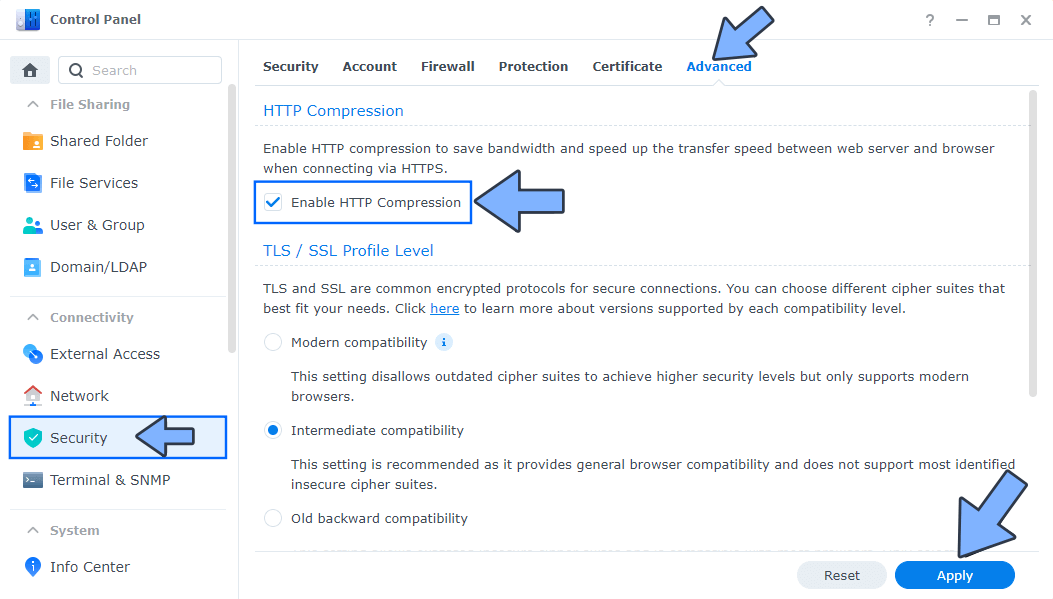
STEP 11
Go to File Station and open the docker folder. Inside the docker folder, create one new folder and name it youtrack. Follow the instructions in the image below.
Note: Be careful to enter only lowercase, not uppercase letters.
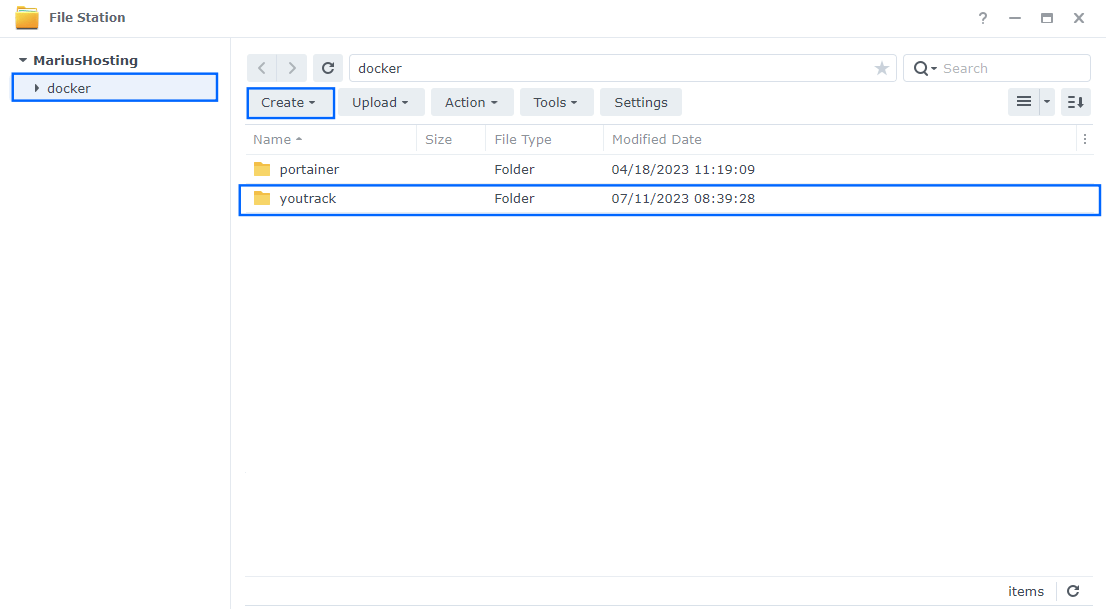
STEP 12
Now create four new folders inside the youtrack folder that you created at STEP 11 and name them backups, config, data, logs. Follow the instructions in the image below.
Note: Be careful to enter only lowercase, not uppercase letters.
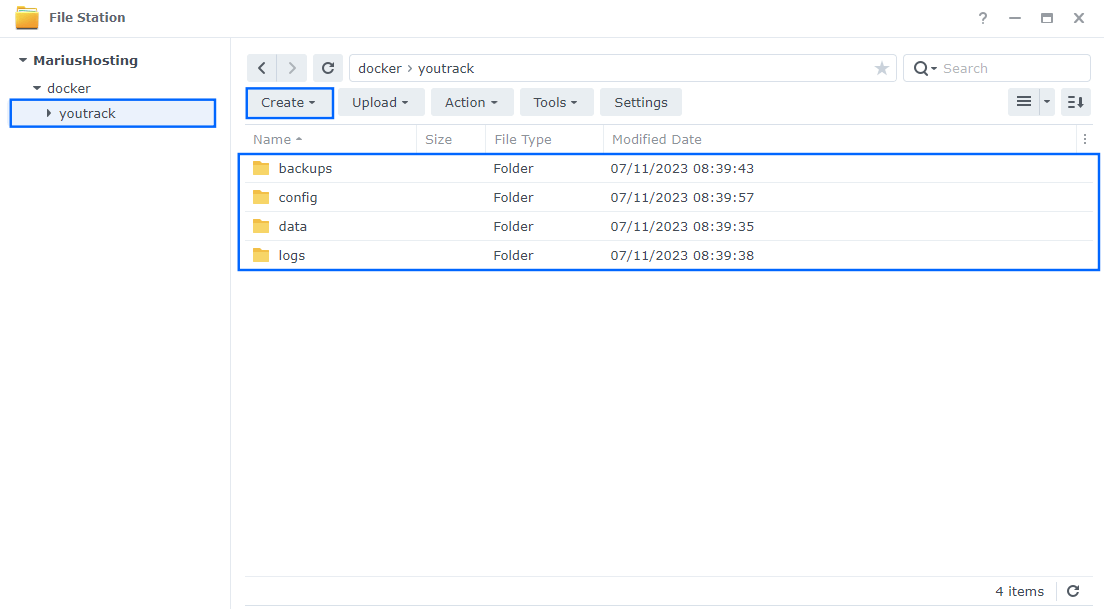
STEP 13
Right click on the youtrack folder that you have previously created at STEP 11 then click Properties. Follow the instructions in the image below.
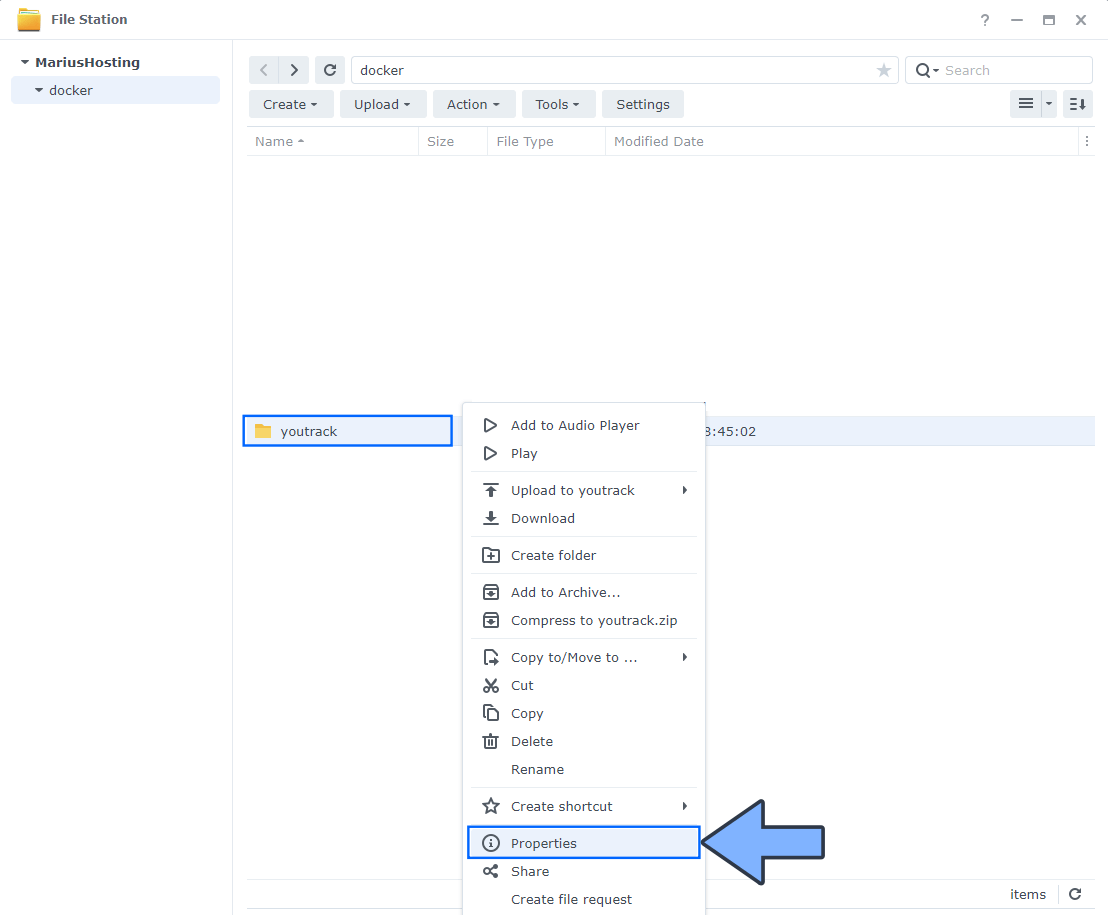
STEP 14
Go to the Permission tab, then click Advanced options. From the drop-down menu, choose “Make inherited permissions explicit“. Follow the instructions in the image below.
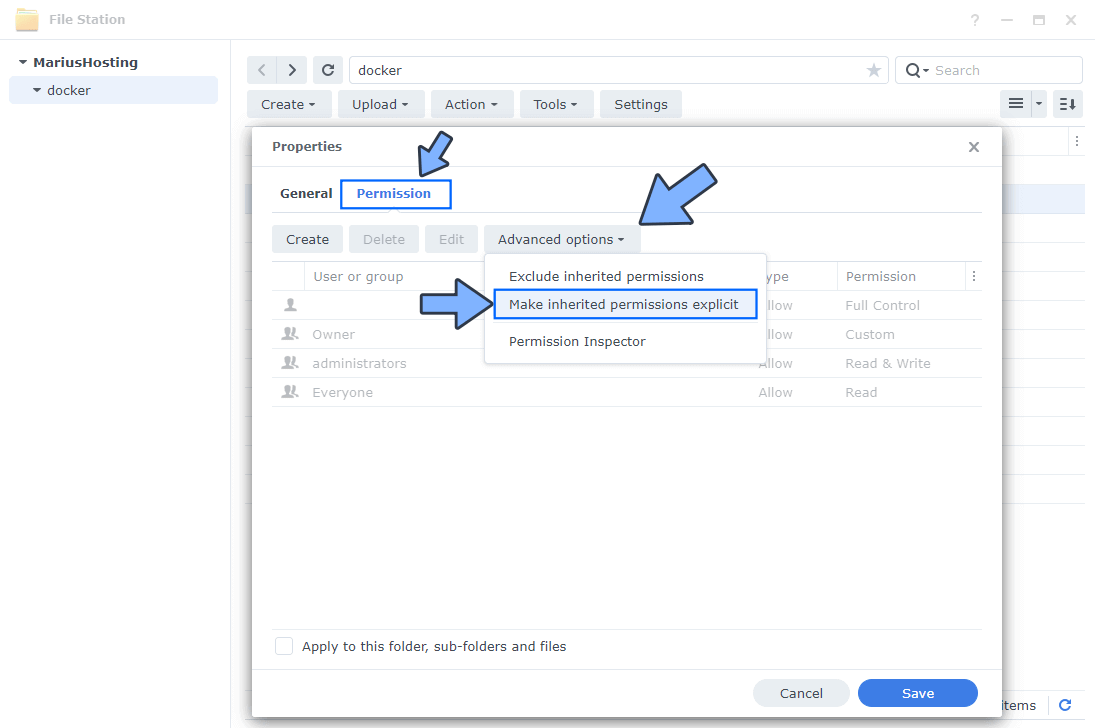
STEP 15
Select Everyone then click the Edit tab. Follow the instructions in the image below.
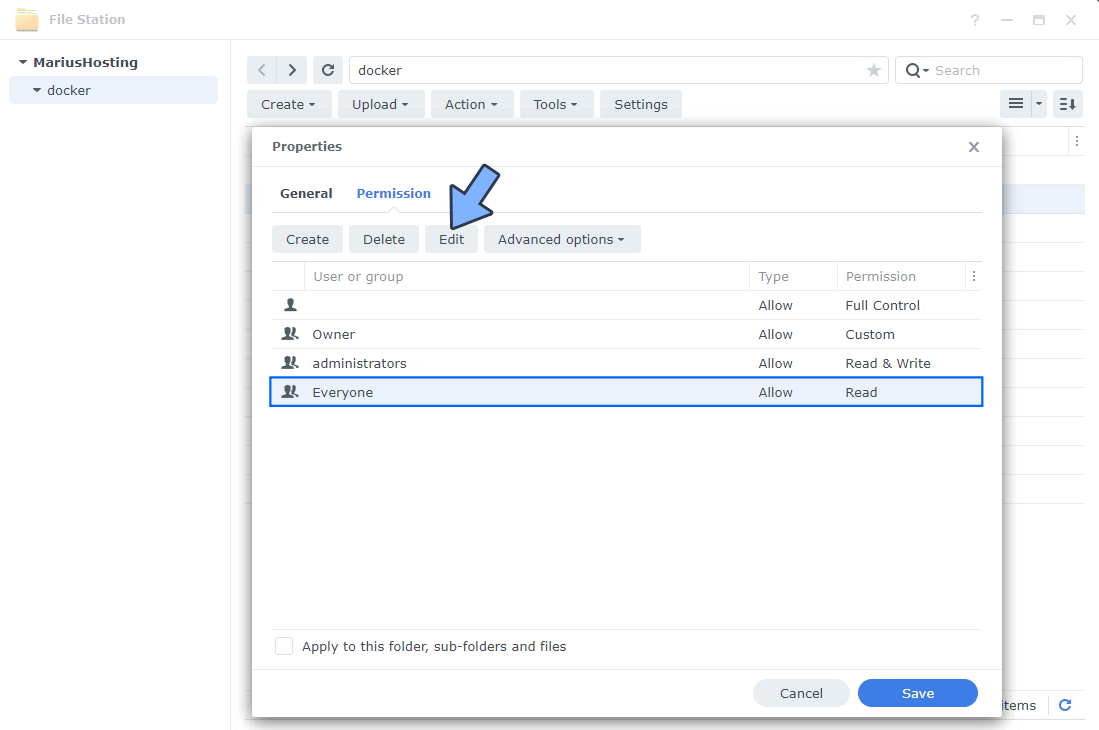
STEP 16
Check all Read and Write Permissions. Click Done. Follow the instructions in the image below.
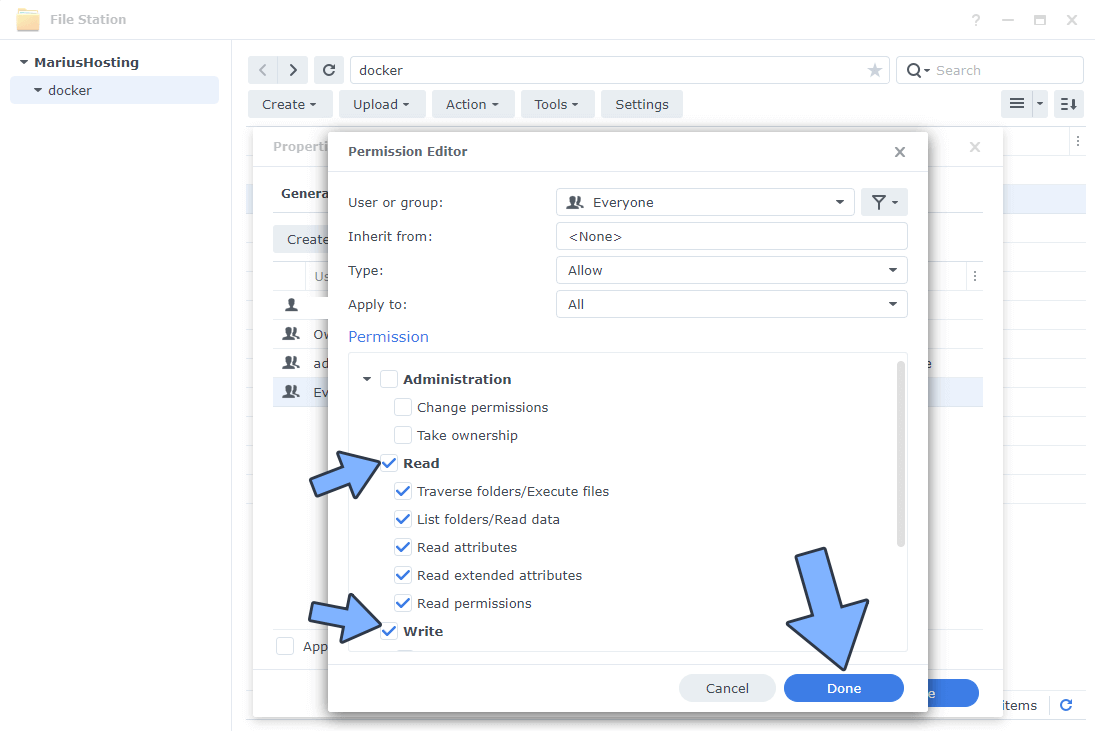
STEP 17
After you click Done on STEP 16, check “Apply to this folder, sub-folders and files“. Click Save. Follow the instructions in the image below.
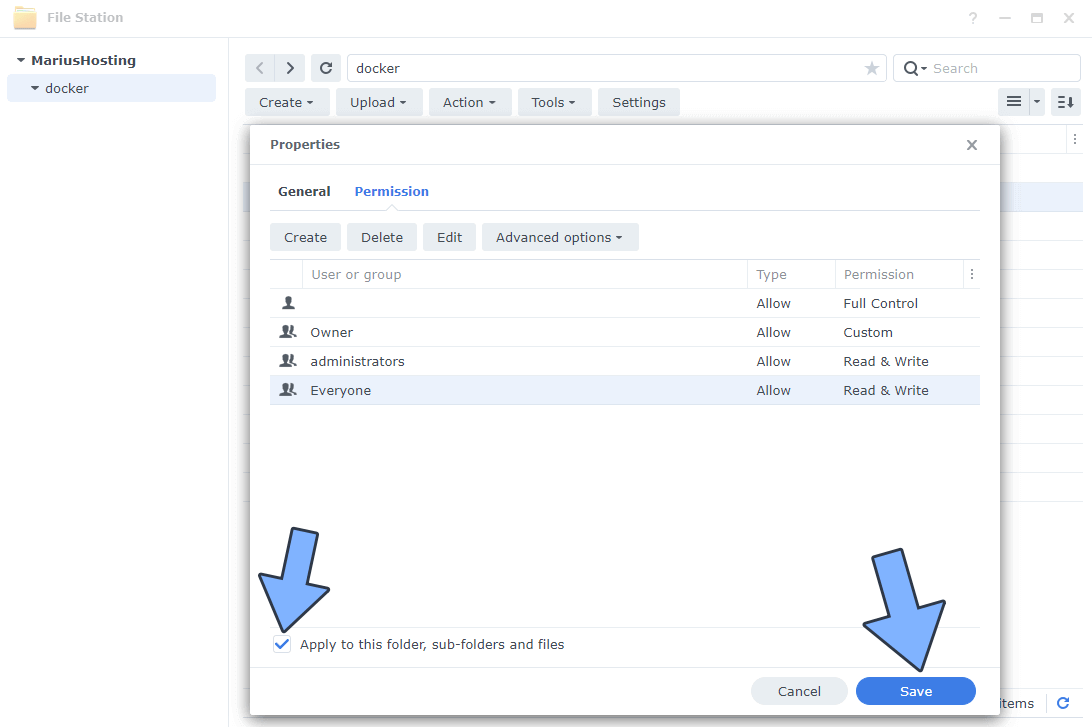
STEP 18
Log into Portainer using your username and password. On the left sidebar in Portainer, click on Home then Live connect. Follow the instructions in the image below.

On the left sidebar in Portainer, click on Stacks then + Add stack. Follow the instructions in the image below.

STEP 19
In the Name field type in youtrack. Follow the instructions in the image below.
version: "3.9"
services:
youtrack:
image: jetbrains/youtrack:2025.1.82518
container_name: YouTrack
hostname: youtrack
mem_limit: 4g
shm_size: 2g
cpu_shares: 1024
security_opt:
- seccomp:unconfined
ports:
- 4072:8080
volumes:
- /volume1/docker/youtrack/data:/opt/youtrack/data:rw
- /volume1/docker/youtrack/config:/opt/youtrack/conf:rw
- /volume1/docker/youtrack/logs:/opt/youtrack/logs:rw
- /volume1/docker/youtrack/backups:/opt/youtrack/backups:rw
restart: on-failure:5
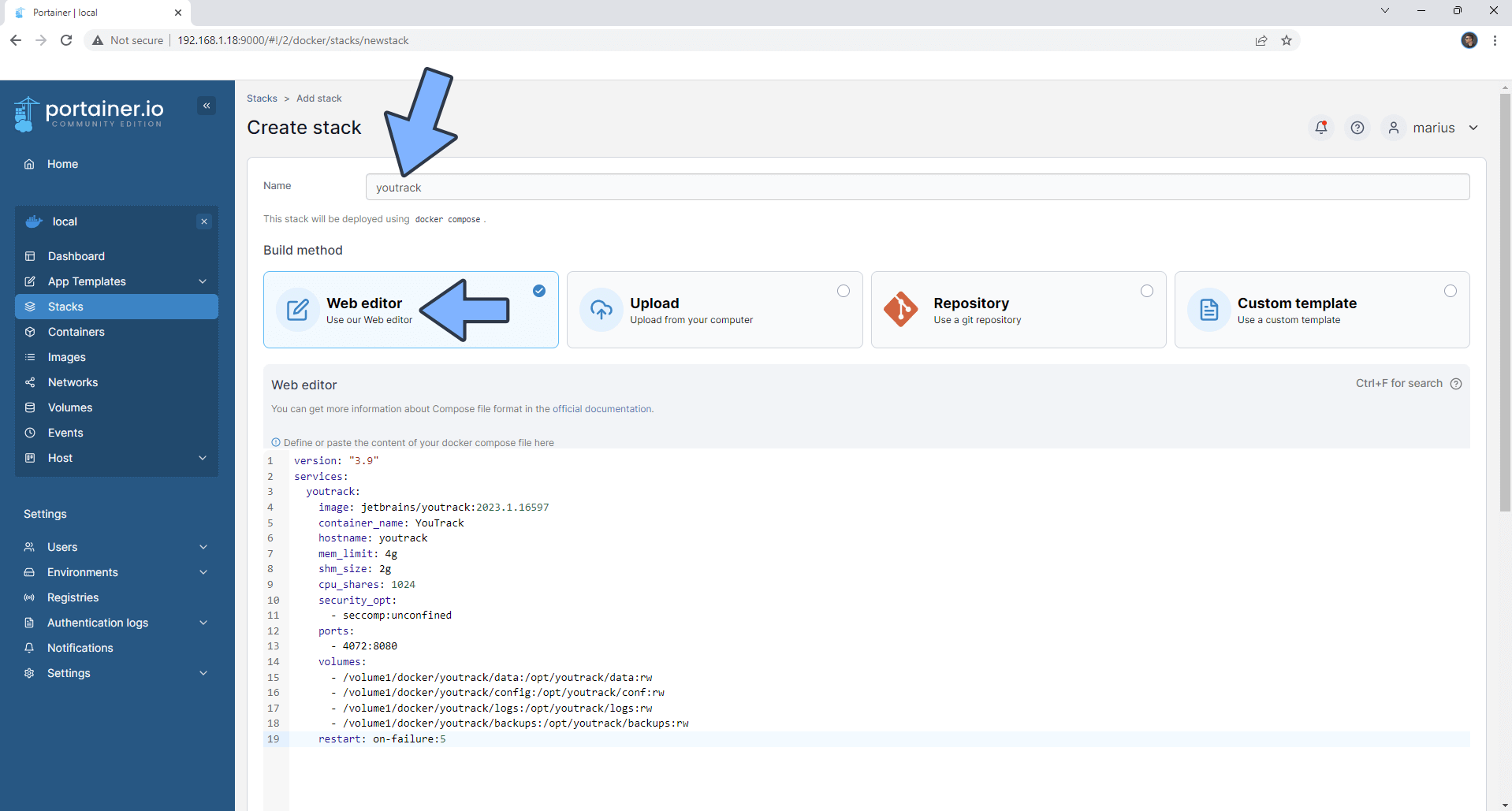
STEP 20
Scroll down on the page until you see a button named Deploy the stack. Click on it. Follow the instructions in the image below. The installation process can take up to a few minutes. It will depend on your Internet speed connection.
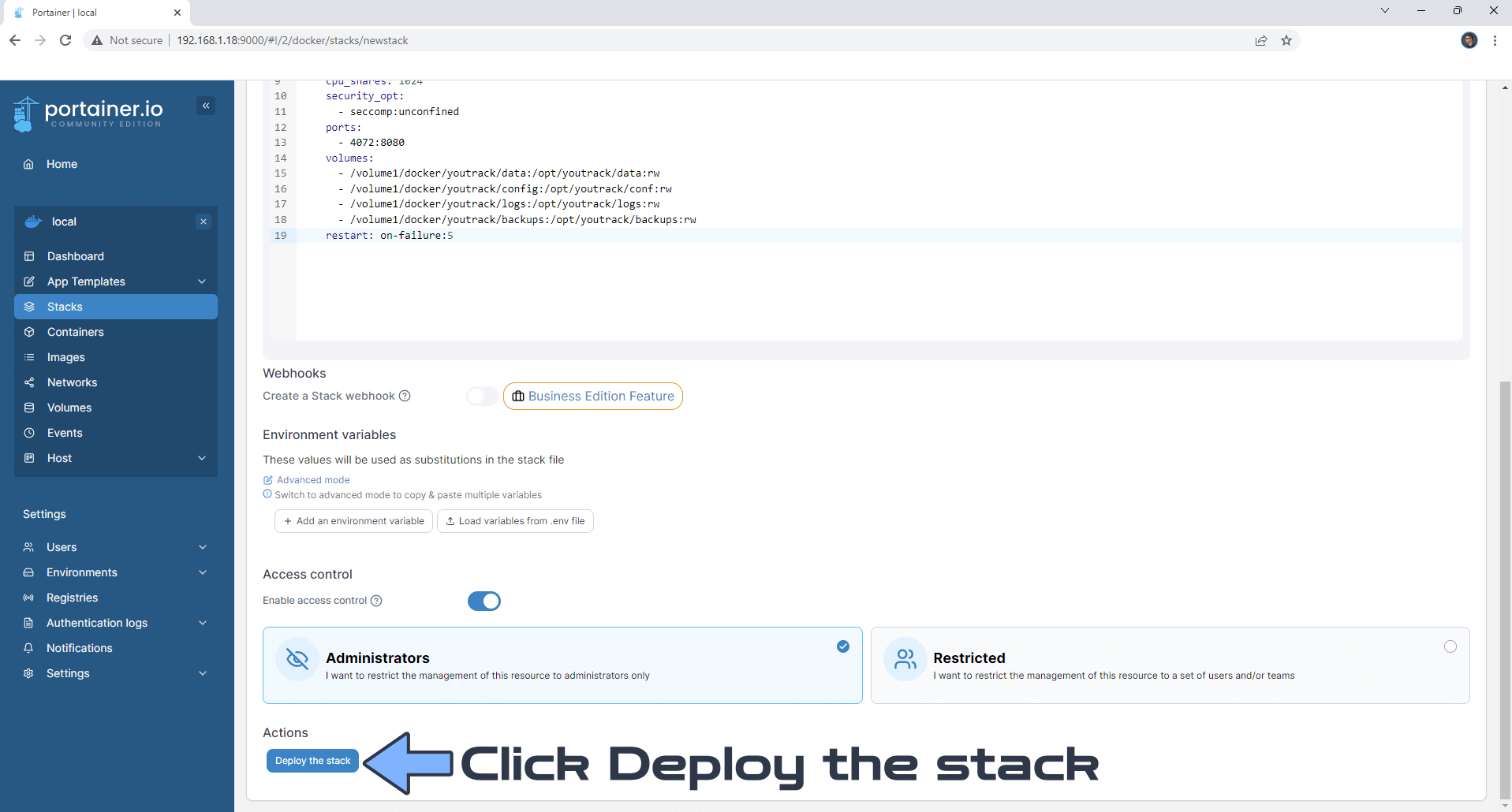
STEP 21
If everything goes right, you will see the following message at the top right of your screen: “Success Stack successfully deployed“.

STEP 22
Go to docker / youtrack / config / internal / services / configurationWizard then open the wizard_token.txt file. Follow the instructions in the image below.
Note: You can visualize the wizard_token.txt file only if you have Synology Text Editor installed as per the instructions at STEP 4.
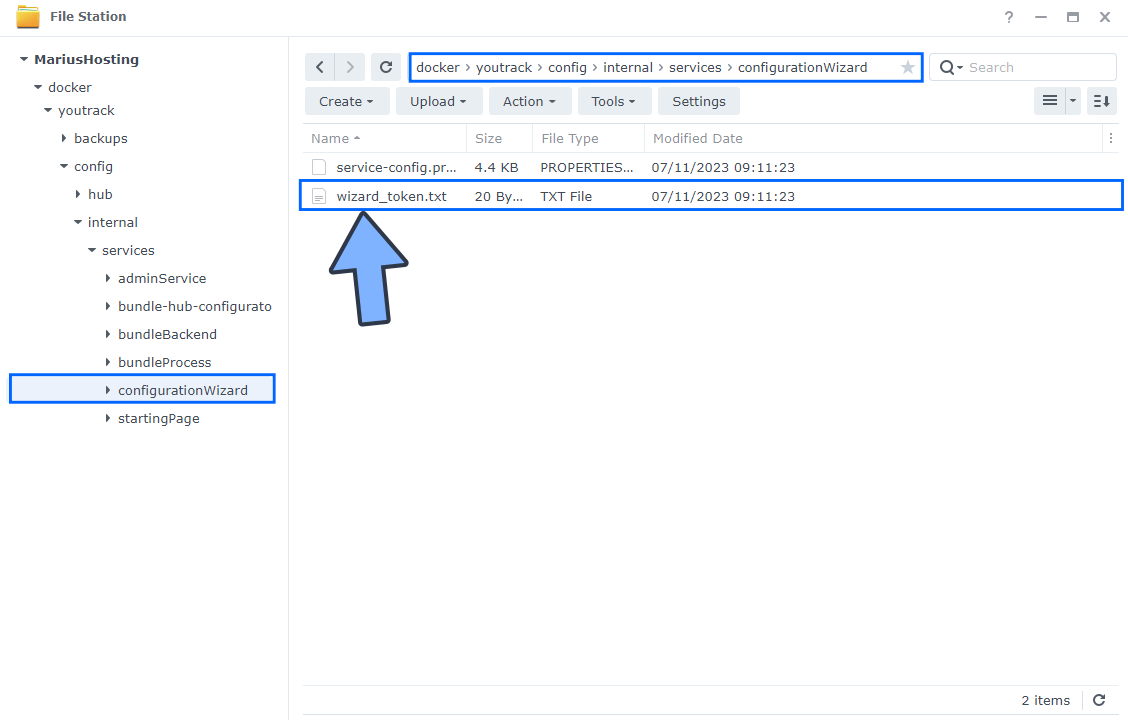
STEP 23
Copy the Token Key inside the wizard_token.txt file. You will need it later at STEP 25. Follow the instructions in the image below.
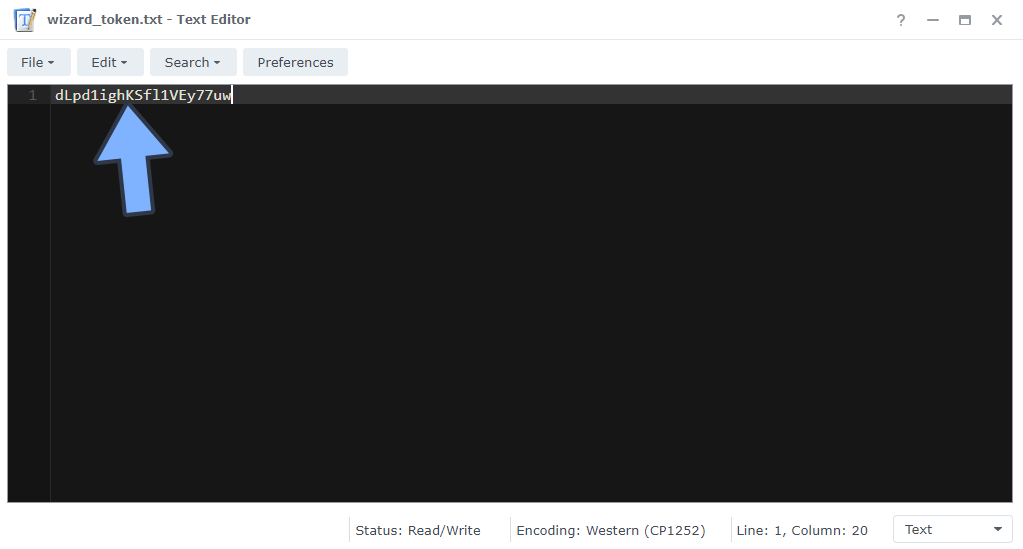
STEP 24
🟢Please Support My work by Making a Donation. Almost 99,9% of the people that install something using my guides forget to support my work, or just ignore STEP 1. I’ve been very honest about this aspect of my work since the beginning: I don’t run any ADS, I don’t require subscriptions, paid or otherwise, I don’t collect IPs, emails, and I don’t have any referral links from Amazon or other merchants. I also don’t have any POP-UPs or COOKIES. I have repeatedly been told over the years how much I have contributed to the community. It’s something I love doing and have been honest about my passion since the beginning. But I also Need The Community to Support me Back to be able to continue doing this work.
STEP 25
Now open your browser and type in your HTTPS/SSL certificate like this https://youtrack.yourname.synology.me In my case it’s https://youtrack.mariushosting.synology.me If everything goes right, you will see the YouTrack setup page. In the Token area type in your own token key that you have previously copied at STEP 23. Click Log in. Follow the instructions in the image below.
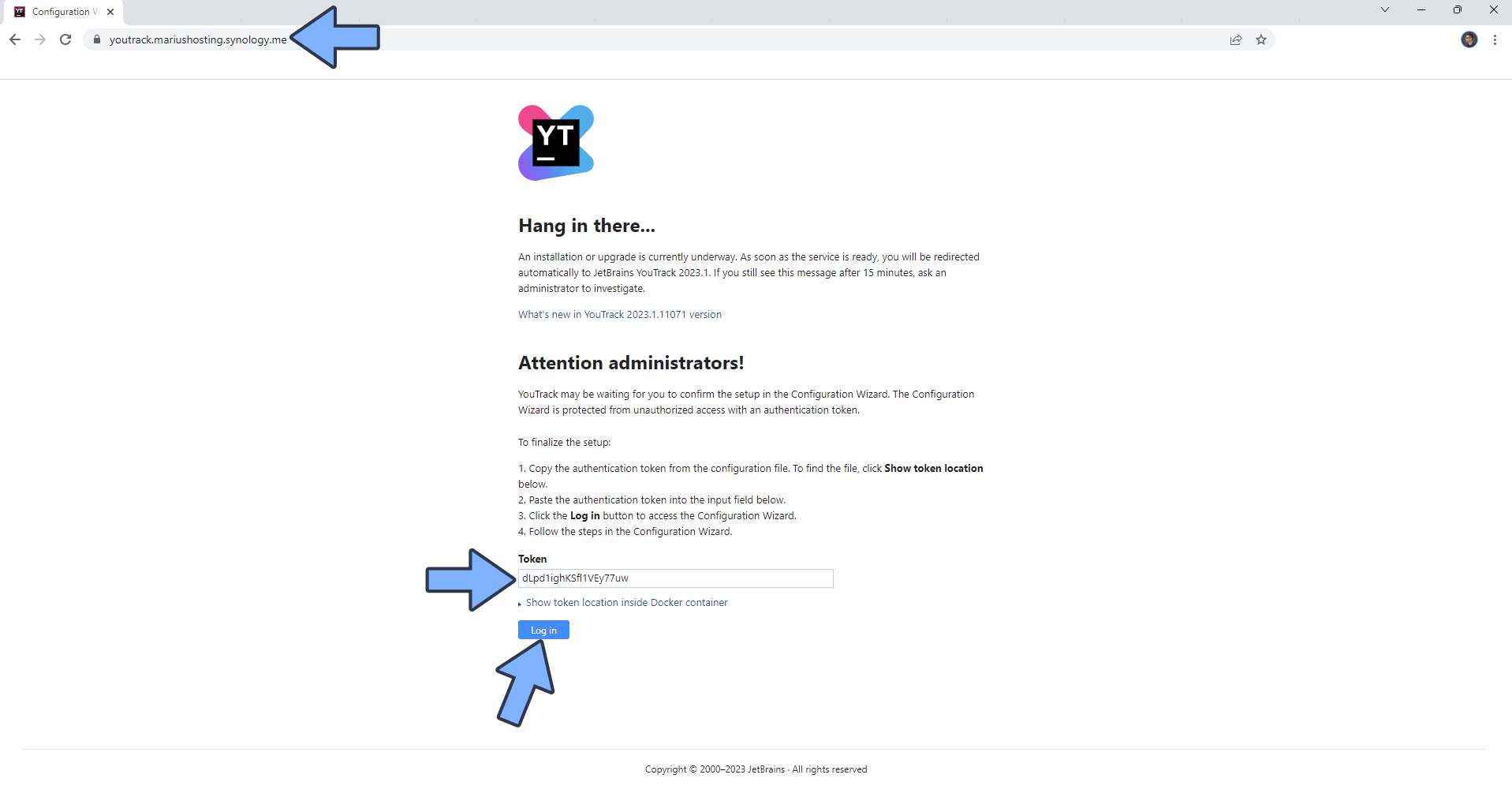
STEP 26
Click Set up. Follow the instructions in the image below.
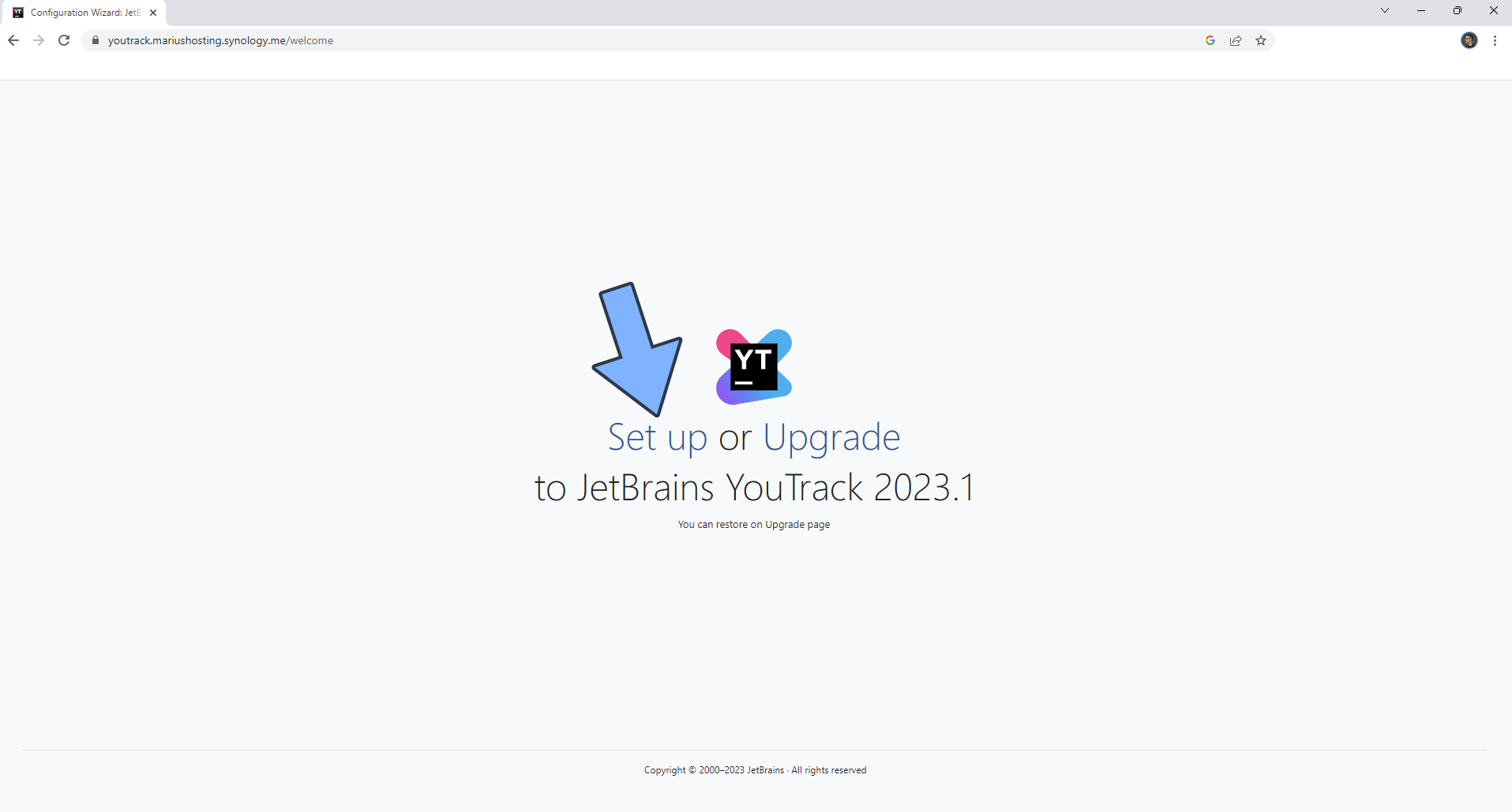
STEP 27
Click on the HTTP tab, then type in the https:// your synology.me DDNS address that you have previously created at STEP 7. Click Next. Follow the instructions in the image below.
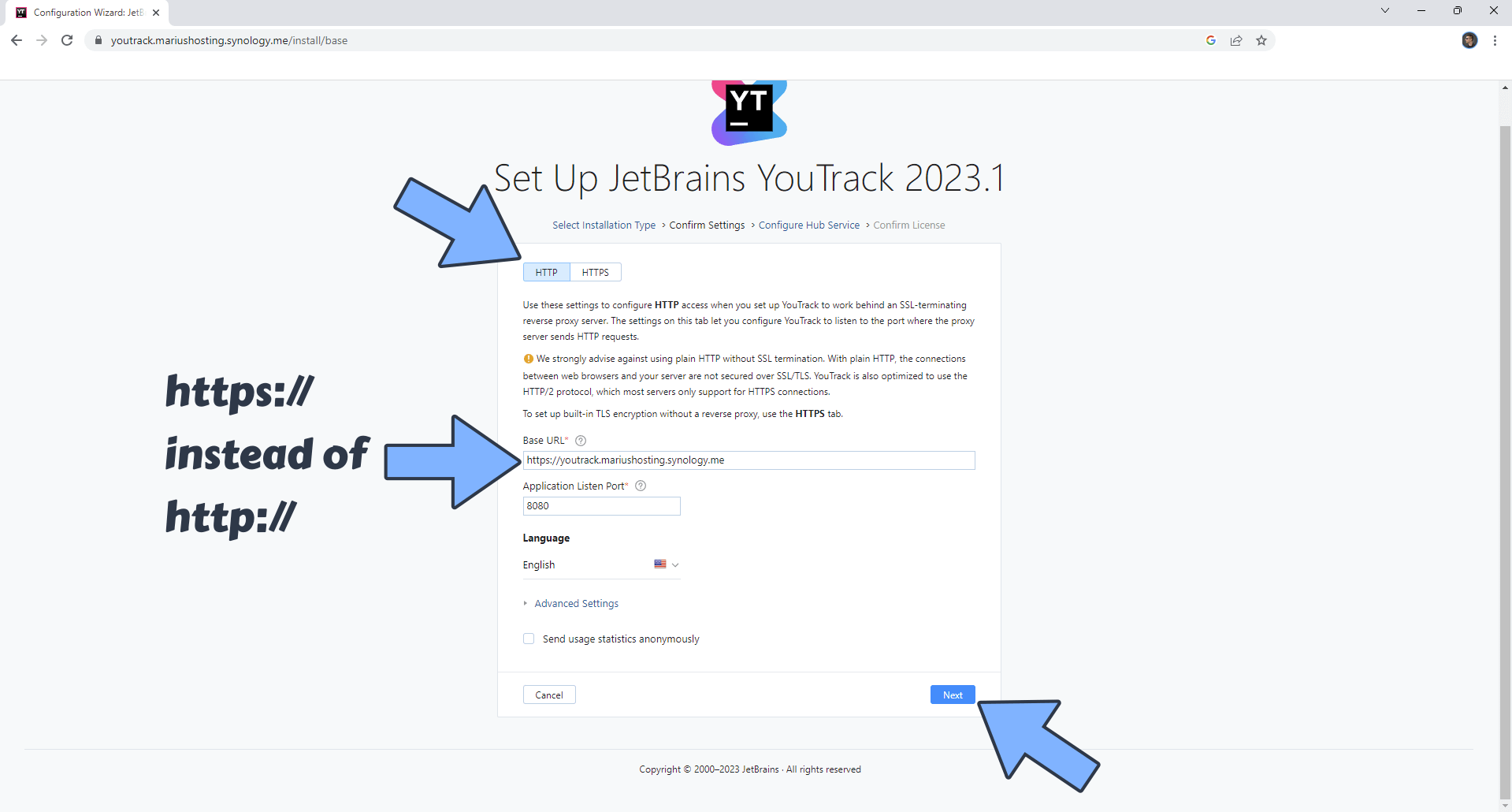
STEP 28
Click Finish. Follow the instructions in the image below.
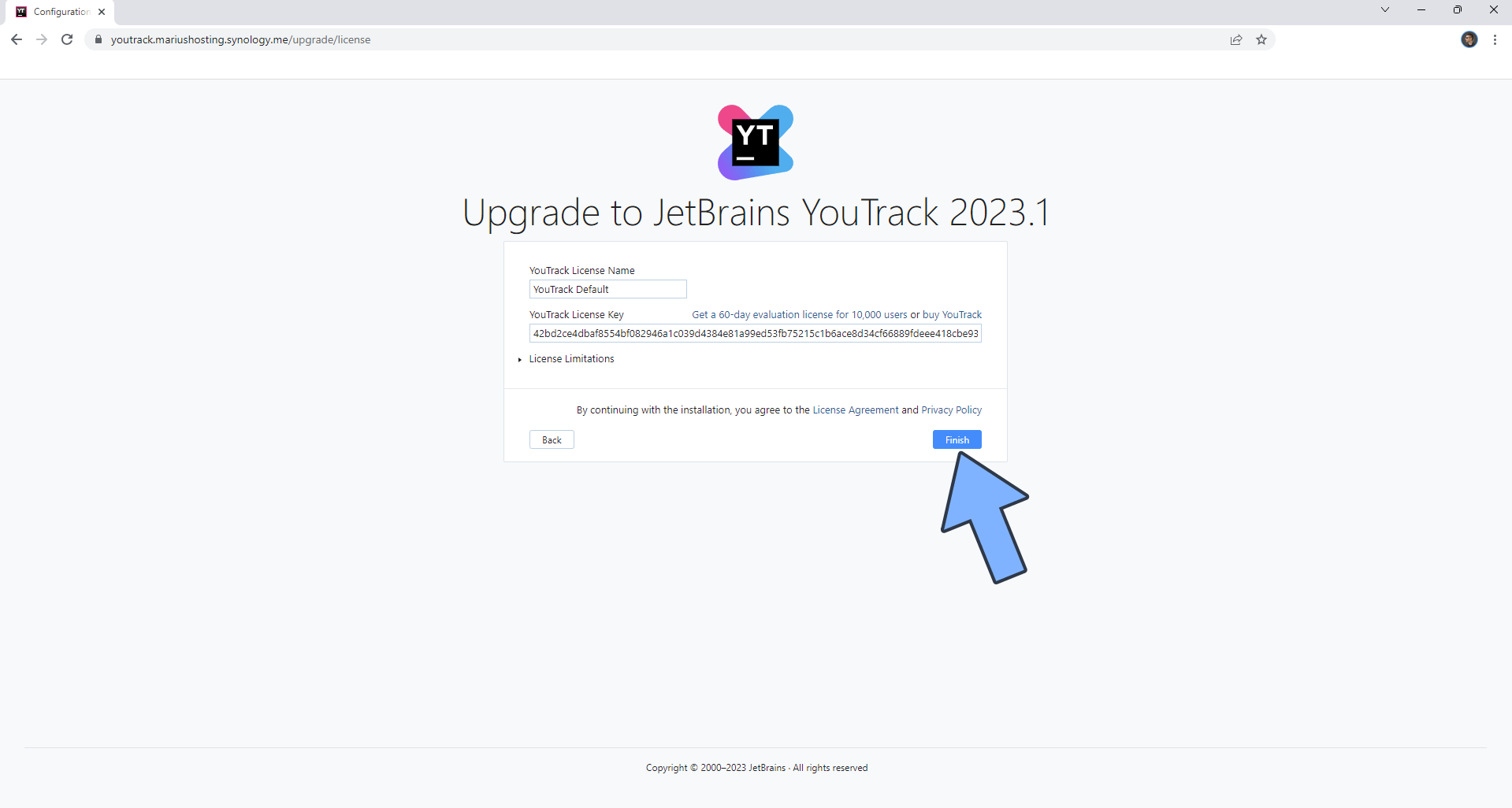
STEP 29
Choose Use Built-in Hub. Create your Admin login Username and Password then click Next. Follow the instructions in the image below.
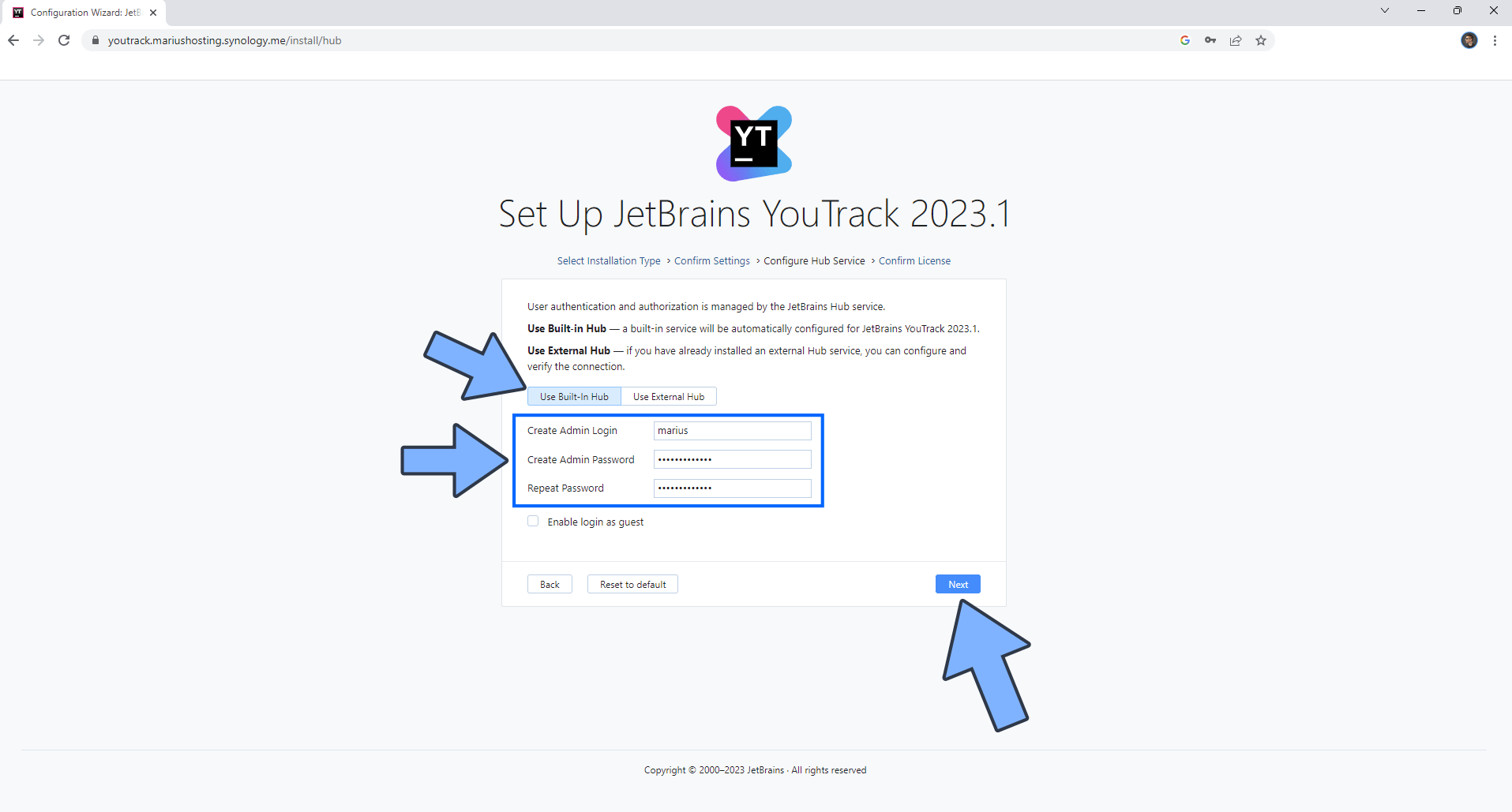
STEP 30
Wait approximately 5 minutes until YouTrack is installed. Follow the instructions in the image below.
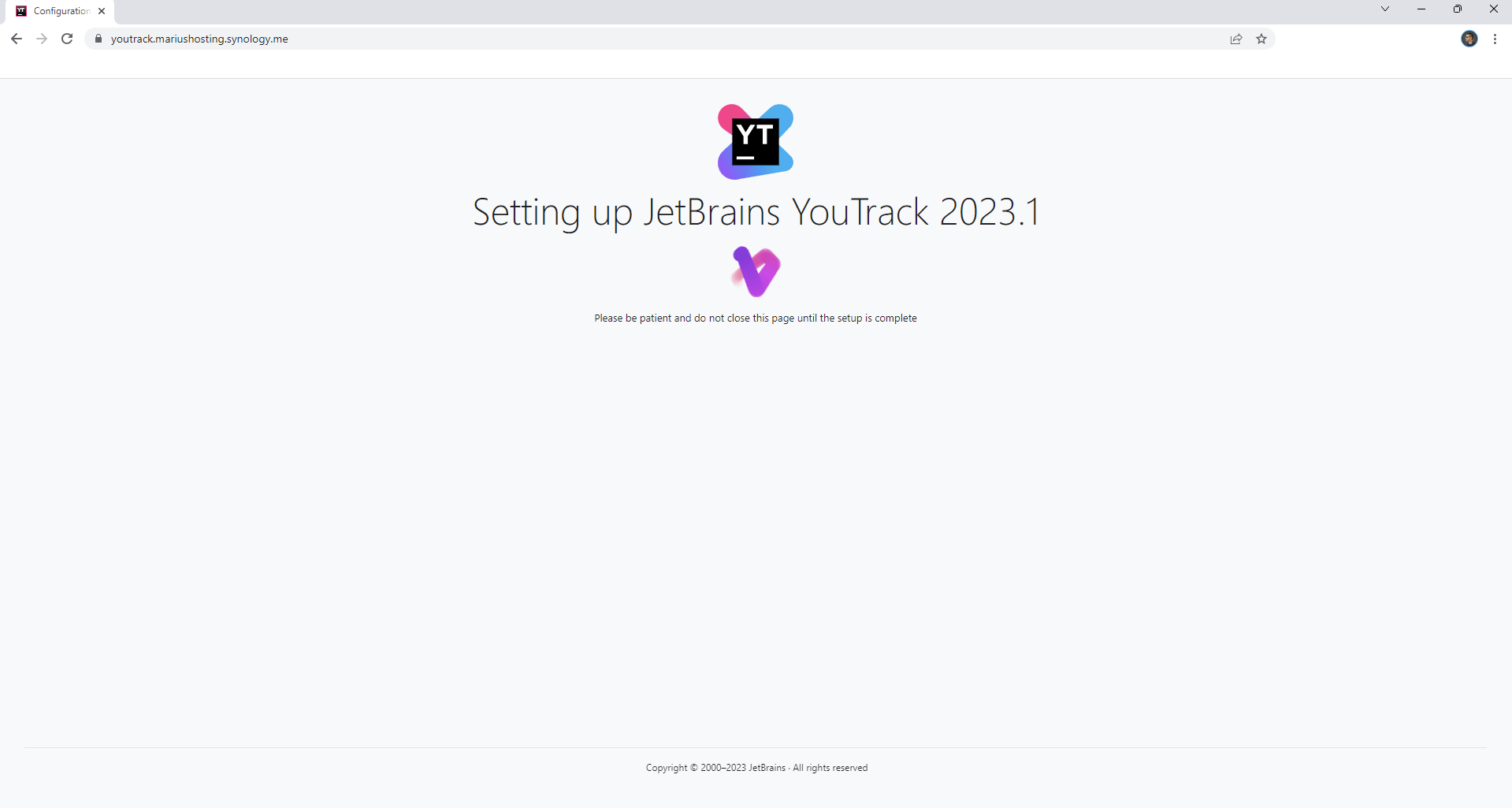
STEP 31
Type in your own Username and Password that you have previously created at STEP 29 then click Log in. Follow the instructions in the image below.
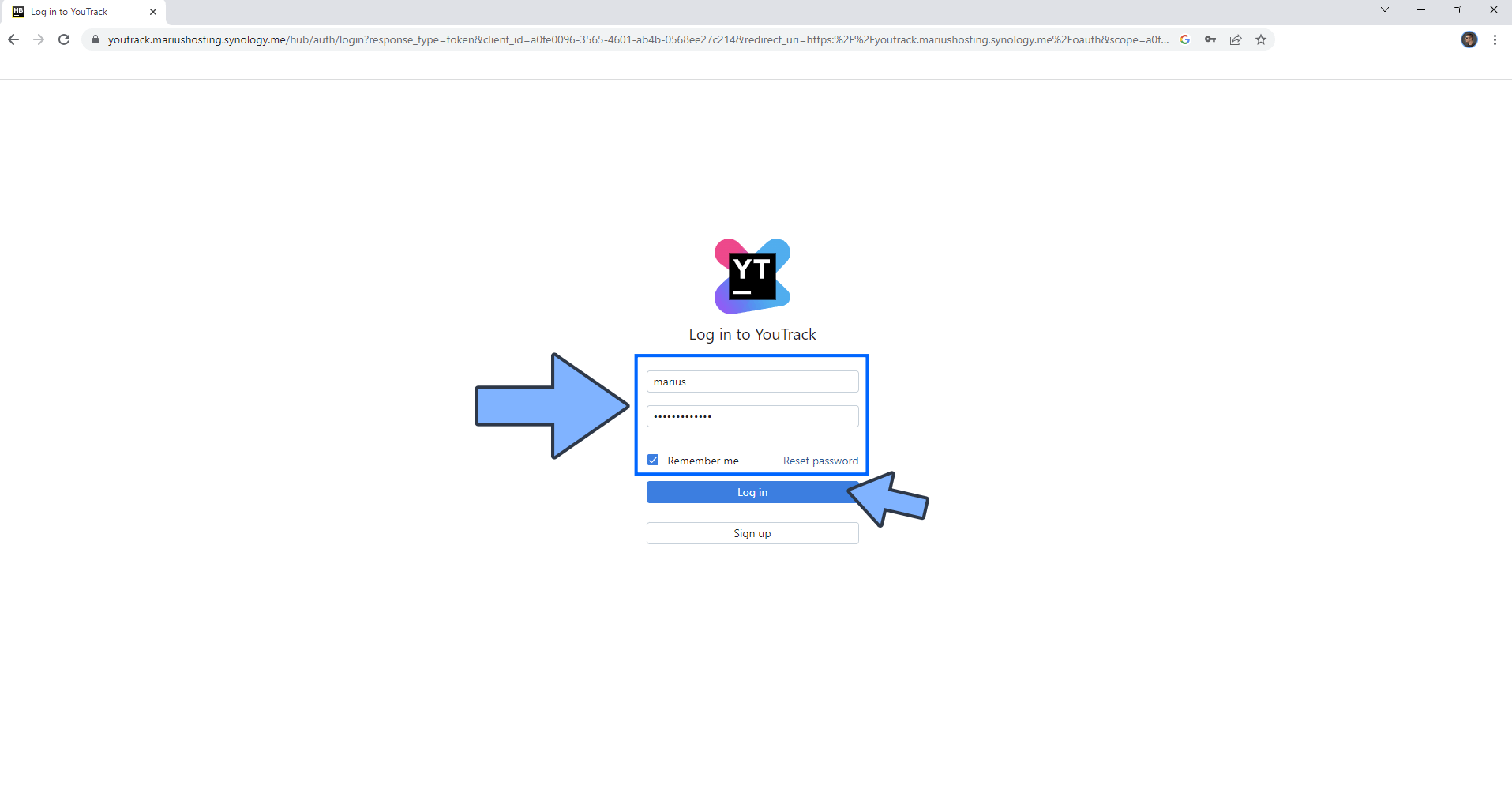
STEP 32
Your YouTrack dashboard at a glance!
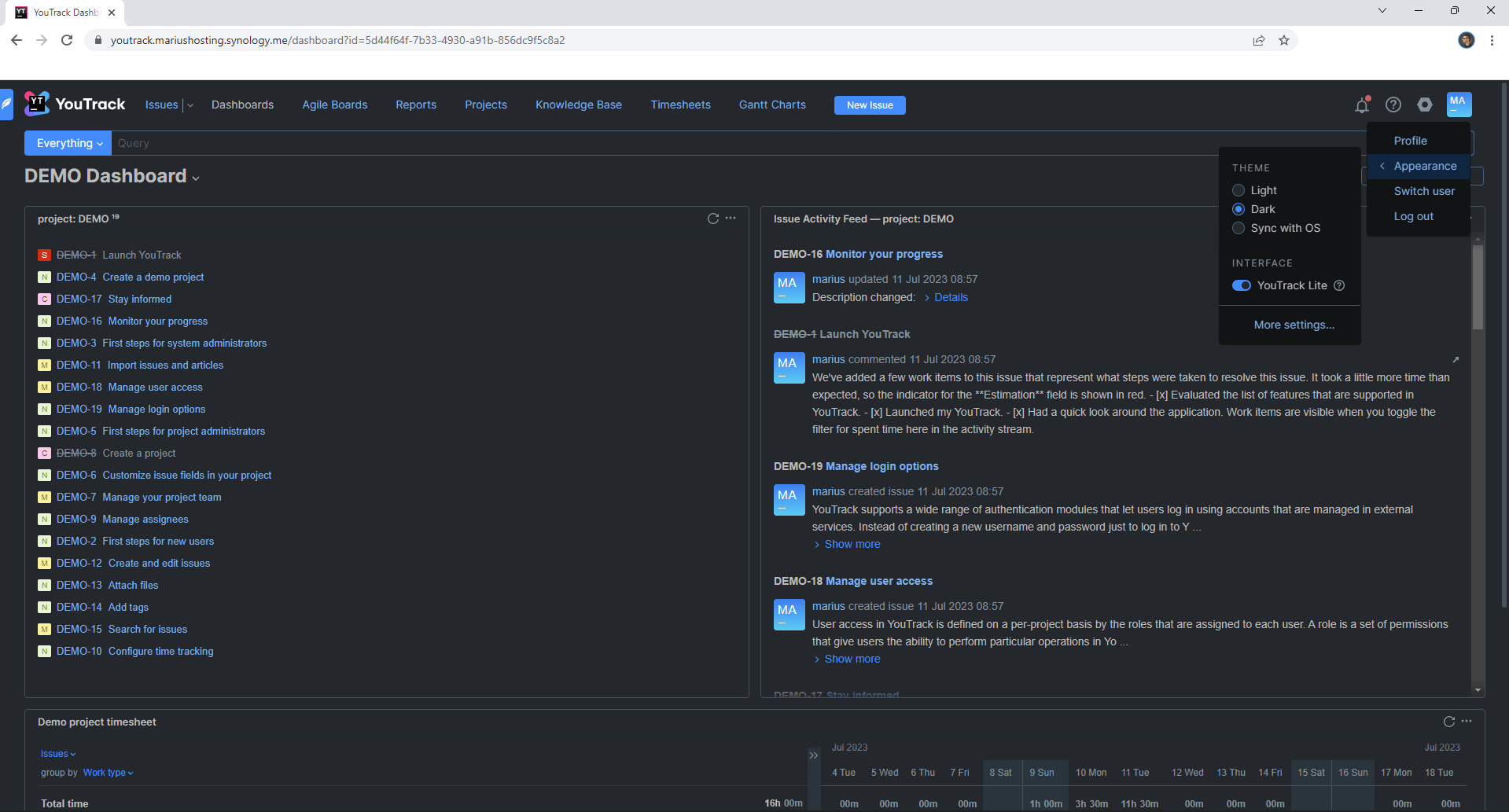
Enjoy YouTrack!
If you encounter issues by using this container, make sure to check out the Common Docker issues article.
Note: YouTrack Full Documentation.
Note: Can I run Docker on my Synology NAS? See the supported models.
Note: How to Back Up Docker Containers on your Synology NAS.
Note: Find out how to update the YouTrack container with the latest image.
Note: How to Free Disk Space on Your NAS if You Run Docker.
Note: How to Schedule Start & Stop For Docker Containers.
Note: How to Activate Email Notifications.
Note: How to Add Access Control Profile on Your NAS.
Note: How to Change Docker Containers Restart Policy.
Note: How to Use Docker Containers With VPN.
Note: Convert Docker Run Into Docker Compose.
Note: How to Clean Docker.
Note: How to Clean Docker Automatically.
Note: Best Practices When Using Docker and DDNS.
Note: Some Docker Containers Need WebSocket.
Note: Find out the Best NAS Models For Docker.
Note: Activate Gmail SMTP For Docker Containers.
This post was updated on Wednesday / August 27th, 2025 at 6:35 PM
